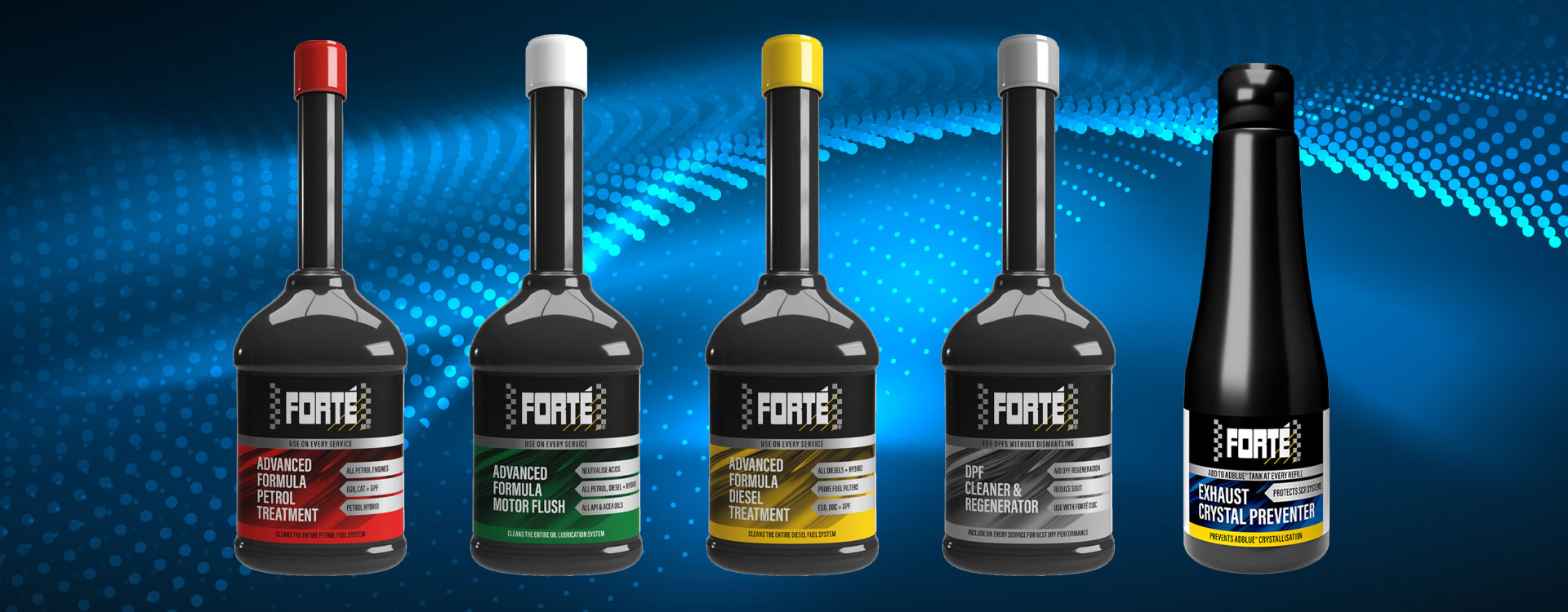Forté Technical Tips – Adverse effects on vehicles that regularly travel through low speed limit zones

In an attempt to reduce accidents, serious injury and fatalities, some areas are adopting lower speed limits in selected areas of inner cities, towns and villages. This has also extended to some hot spots such as schools. In some areas, the speed limit is reduced to 20mph, and as areas widen, drivers can spend some time at low speeds – particularly if this is their commute route between work and home.
Although many drivers support the changes and appreciate the intention of reducing accidents in key areas, they may not think about how this may affect their vehicles.
PROBLEM
Regularly driving at a low speed affects the operating temperature of the vehicle and can lead to various issues, such as sludging of the oil system through condensation and contamination of EGR valves and coolers.
Other issues to note are:
- Fuel ingress to the crankcase leading to acidic oil
- Incomplete combustion creating contamination build-up
- Increase in inlet manifold contamination
- Carbon loading of the Gasoline Particulate Filter
- The inability of the Diesel Particulate Filter to regenerate
- Low exhaust system temperatures increase emissions, and where AdBlue is fitted, crystallisation of the AdBlue components
If a driver regularly uses these routes, it is vital that the vehicle is driven for extended periods to create temperature, evaporate fuel and moisture from the crankcase via the breather system and promote regeneration of the particulate filters. Diesel Particulate Filters require a drive above 40mph for more than 10 minutes to initiate Active regeneration. Gasoline Particulate Filters need a variable speed drive, accelerating and decelerating regularly.
If the vehicle covers low yearly mileage, it is also beneficial to increase the oil change periods by regularly cleaning the oil system and replacing the oil and filter. When a vehicle is used locally with low mileage, moisture and fuel parts rapidly degrade the oil and can lead to sludge build-up and acidic oil. Over time the oil’s acidity increases, which can affect the engine’s components.

SOLUTION
Regularly cleaning the oil system at every service with Advanced Formula Motor Flush and the fuel system with Advanced Formula Petrol Treatment (for petrol engines) or Advanced Formula Diesel Treatment (for diesel engines) will reduce the build-up of contamination.
For diesel engines fitted with DPF and SCR (Selective Catalytic Reduction), use Forté DPF Cleaner and Regenerator and Forté Exhaust Crystal Preventer to assist with keeping the system clean. Our DPF Cleaner and Regenerator will reduce the soot burn temperature, allowing the soot to be removed at a lower temperature whilst driving and speed up the process of Active Regeneration, while our Exhaust Crystal Preventer will reduce the crystallisation of the AdBlue components at low exhaust temperatures.
Find out more at: www.forteuk.co.uk
